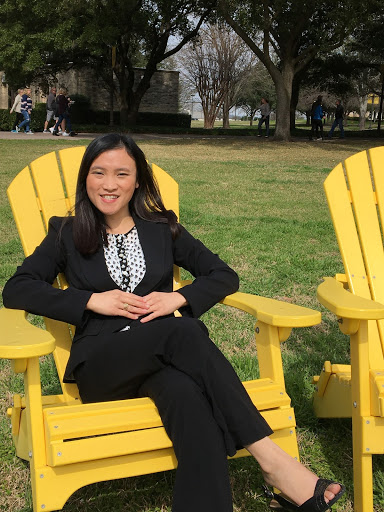When Sara Boyd transferred to Southwestern University (SU) as a sophomore, research was not on her radar. That quickly changed when she attended the symposium for Southwestern’s SCOPE program, a university-wide summer research opportunity for undergraduates from any major. “I was fascinated by projects that used AI to generate art, music and competitive Pacman playing agents,” Sara recalls. “SU prides itself on its interdisciplinary opportunities, and here I was able to see it first-hand.” Sara left the symposium thinking research might be worth trying someday.
She didn’t have to wait long for a research opportunity. During a biweekly lunch social for CS students and faculty, Dr. Barbara Anthony invited her to consider an independent study, giving her several papers related to the potential project. Sara’s curiosity overcame her inexperience. “At first, they were intimidating to read because there was a lot of jargon that was new to me since I was still taking introductory courses and hadn’t taken algorithms yet,” Sara explains. “However, the overall topic of the research intrigued me because its application in the real world has the power to improve the efficiency of businesses and even save lives.” In the independent study, Sara tackled the Dial-A-Ride Problem (DARP): Given a collection of rides as origin/destination pairs, schedule rides to maximize some reward function. Applications of DARP include ride-sharing services and ambulance routing. By examining “chains” formed when one ride starts where another ends, Sara and her colleagues developed a 2/3-approximation algorithm for DARP under some simplifying assumptions. This means their algorithm always achieves at least two-thirds of the maximum possible revenue, a compromise made for the sake of efficient computation. Their paper was accepted to the 2019 Algorithmic Approaches for Transportation Modeling, Optimization, and Systems (ATMOS) conference, an achievement Sara never dreamed of as she was transferring to SU.
Sara’s second research experience was an REU led by Drs. Manfred Huber and Ishfaq Ahmad at the University of Texas at Arlington (UTA) focused on developing technology to help people with disabilities. She joined a team developing a cost-efficient system to help people with quadriplegia drive their power wheelchair independently. They combined a low-cost electroencephalography (EEG) headset, which measures electrical activity in the brain, with a custom-designed graphical user interface (GUI) to translate the wheelchair driver’s brain signals into the desired movements. Although the EEG signal recognition program wasn’t accurate enough to safely test with a human driver, they achieved a proof of concept, successfully driving an empty wheelchair a few hundred feet.

The REU at UTA brought Sara into a vibrant, collaborative lab space. “Coming from a small liberal arts university, I was impressed by the resources that were available. There were many computers, robots, and electronics we could use to build the systems we needed. I also found it exciting that there were so many projects going on at once.” Sara discovered from both of her research experiences that she enjoys the non-linear nature of research. “Each week there were new, unanticipated leads we discovered. Sometimes it felt like we lost progress. But I feel that I’ve learned more through the exploratory nature of research than if we had gone directly to our solution.”
To students considering research or just starting out, Sara encourages, “Sometimes it may feel like you have run into a brick wall or are completely overwhelmed with new terms and papers, but, not dissimilar to other areas of life, research is most rewarding when you collaborate with peers and mentors. With your collective knowledge working together, you will be surprised to see how interesting and elegant your solution will turn out.” To fellow transfer students, she acknowledges that it may seem like some peers judge your abilities based on going to a junior college first, but that shouldn’t stop you from considering research. “I want other transfer students to know that research opportunities are open to them too.”
— Written and edited by Ian Ludden
